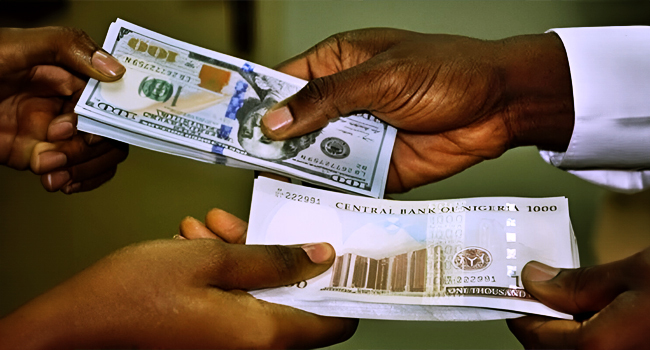The naira continued its downward trend at the official foreign exchange market, depreciating by 1.25% week-on-week to settle at ₦1,536.89/$ on Friday.
Persistent Decline
According to Central Bank of Nigeria (CBN) data, the naira opened the week at ₦1,528.03/$, down from ₦1,517.93/$ in the previous session. It weakened further to ₦1,532.93/$ before briefly recovering midweek. However, by Friday, it had fallen to ₦1,536.89/$.
The depreciation coincided with stalled negotiations between the Nigerian National Petroleum Corporation Limited (NNPCL) and local refineries on the naira-for-crude agreement. The suspension of naira-based petroleum sales by the Dangote Refinery has further exacerbated dollar demand pressures in the FX market.
Market Reactions
Despite CBN’s intervention in boosting FX supply to banks and Bureaux De Change (BDCs), the currency remains under pressure. Analysts warn that without structural reforms, these interventions may only provide temporary relief.
Experts at Cowry Assets Management Limited noted:
“We expect a mixed outlook for the naira as demand pressures for the dollar persist, with users and speculators continuing to exploit arbitrage opportunities. However, CBN is likely to sustain its weekly interventions.”
Parallel Market Trends
At the parallel market, the naira gained ₦12 against the dollar, appreciating by 0.77% week-on-week to close at an average of ₦1,568/$.
A report by Afrinvest indicated that the naira closed at ₦1,565/$ in the parallel market. The firm projected a stable naira in the short term, driven by continued CBN intervention.
Foreign Reserves and External Factors
CBN’s foreign reserves declined by 0.06%, dropping from $38.37 billion to $38.35 billion as of Thursday. Analysts at Cowry Assets Management attributed this decline to CBN’s intervention efforts and minimal forex inflows.
Foreign investors remain cautious, partly due to lower oil prices impacting Nigeria’s revenue. As an oil-dependent economy, Nigeria is susceptible to global price fluctuations and geopolitical tensions.
Last week, Brent crude oil prices rose by 3.0%, settling around $85.00 per barrel, following fresh US sanctions on Iran and OPEC+ production cuts. These factors could affect Nigeria’s FX reserves and naira stability in the coming weeks.
Conclusion
The naira’s trajectory remains uncertain, with short-term relief hinging on CBN’s interventions and external economic conditions. Without comprehensive reforms to boost FX liquidity and diversify revenue sources, the naira may continue to face downward pressure in the long run.
